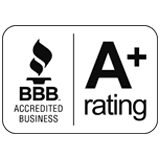Newton Hindering Lawyers
 Hindering apprehension or prosecution is a serious criminal offense that can arise from an array of scenarios and different types of conduct. The statutory authority is overly broad, and according to N.J.S.A. 2C:29-3a(1) thru (7) and N.J.S.A. 2C:29-3b, there are several types of conduct that can constitute hindering. When hindering apprehension of oneself, the statute refers to four actions; however, when hindering apprehension of another the statute refers to seven acts. The overall premise of the statute is to criminalize conduct that impedes, interferes, or evades an investigation or prosecution. If you have been charged with hindering in Sussex County or Warren County, it is critical to have aggressive and experienced criminal defense attorneys represent you to fight against these charges. You could be facing significant jail time, depending on the specific level of the offense in your case. In addition to that, you are also staring down serious fines and penalties imposed by the Court. First and foremost, in the face of hindering apprehension or prosecution charges, you must understand what lies ahead and how to proceed properly. Contact The Tormey Law Firm today to start building your top defense. Our attorneys have successfully defended a multitude of clients arrested and charged with crimes in towns such as Newton, Sparta, Hackettstown, Phillipsburg, Hopatcong, Frankford, and Franklin Borough, and we are here to assist you. There are important considerations involved when facing hindering accusations, including whether you have been charged with a second, third, or fourth degree crime or disorderly persons offense. Thus, you need a knowledgeable lawyer to review your case and the circumstances involved. If you are concurrently being charged with any companion offenses, such as eluding an officer, obstruction of law, resisting arrest, assault on a police officer, or disorderly conduct, it is even more important to consider hiring a lawyer who can zealously defend you in Municipal or Superior Court. Call 973-755-1695 today for a free consultation.
Hindering apprehension or prosecution is a serious criminal offense that can arise from an array of scenarios and different types of conduct. The statutory authority is overly broad, and according to N.J.S.A. 2C:29-3a(1) thru (7) and N.J.S.A. 2C:29-3b, there are several types of conduct that can constitute hindering. When hindering apprehension of oneself, the statute refers to four actions; however, when hindering apprehension of another the statute refers to seven acts. The overall premise of the statute is to criminalize conduct that impedes, interferes, or evades an investigation or prosecution. If you have been charged with hindering in Sussex County or Warren County, it is critical to have aggressive and experienced criminal defense attorneys represent you to fight against these charges. You could be facing significant jail time, depending on the specific level of the offense in your case. In addition to that, you are also staring down serious fines and penalties imposed by the Court. First and foremost, in the face of hindering apprehension or prosecution charges, you must understand what lies ahead and how to proceed properly. Contact The Tormey Law Firm today to start building your top defense. Our attorneys have successfully defended a multitude of clients arrested and charged with crimes in towns such as Newton, Sparta, Hackettstown, Phillipsburg, Hopatcong, Frankford, and Franklin Borough, and we are here to assist you. There are important considerations involved when facing hindering accusations, including whether you have been charged with a second, third, or fourth degree crime or disorderly persons offense. Thus, you need a knowledgeable lawyer to review your case and the circumstances involved. If you are concurrently being charged with any companion offenses, such as eluding an officer, obstruction of law, resisting arrest, assault on a police officer, or disorderly conduct, it is even more important to consider hiring a lawyer who can zealously defend you in Municipal or Superior Court. Call 973-755-1695 today for a free consultation.
What is Hindering Apprehension or Prosecution in New Jersey?
Charges for hindering apprehension in New Jersey generally deal with impeding the investigation of a crime or traffic offense by either helping someone being pursued by law enforcement, or destroying evidence that is related to a criminal investigation. When it comes to hindering the apprehension or prosecution of another person, N.J.S.A. 2C:29-3 sets forth that a person commits an offense if, with purpose to hinder the detention, apprehension, investigation, prosecution, conviction or punishment of another for an offense or violation of traffic laws he:
- harbors or conceals the other;
- provides or aids in providing a weapon, money, transportation, disguise or other means of avoiding discovery or apprehension or effecting escape;
- suppresses, by way of concealment or destruction, any evidence of the crime, or tampers with a witness, informant, document or other source of information, regardless of its admissibility in evidence, which might aid in the discovery or apprehension of such person or in the lodging of a charge against him;
- warns the other of impending discovery or apprehension, except that this paragraph does not apply to a warning given in connection with an effort to bring another into compliance with law;
- prevents or obstructs, by means of force, intimidation or deception, anyone from performing an act which might aid in the discovery or apprehension of such person or in the lodging of a charge against him;
- aids such person to protect or expeditiously profit from an advantage derived from such crime; or
- gives false information to a law enforcement officer or a civil State investigator assigned to the Office of the Insurance Fraud Prosecutor.
As it relates to hindering one’s own apprehension, N.J.S.A. 2C:29-3(b) states that a person commits an offense if, with purpose to hinder his own detention, apprehension, investigation, prosecution, conviction or punishment for an offense or violation of traffic laws he:
- suppresses, by way of concealment or destruction, any evidence of the crime or tampers with a document or other source of information, regardless of its admissibility in evidence, which might aid in his discovery or apprehension or in the lodging of a charge against him;
- prevents or obstructs by means of force or intimidation anyone from performing an act which might aid in his discovery or apprehension or in the lodging of a charge against him;
- prevents or obstructs by means of force, intimidation or deception any witness or informant from providing testimony or information, regardless of its admissibility, which might aid in his discovery or apprehension or in the lodging of a charge against him; or
- gives false information to a law enforcement officer or a civil State investigator assigned to the Office of the Insurance Fraud Prosecutor.
What is the State Required to Prove for a Hindering Conviction in NJ?
When dealing with a hindering charge, a conviction is dependent upon the State’s ability to meet their Burden of Proof. More particularly, in order for a defendant to be found guilty, the State must prove beyond a reasonable doubt that the defendant acted knowingly; the defendant acted contrary to N.J.S.A. 2C:29-3; and the defendant acted with purpose to hinder the detention, apprehension, investigation, prosecution, conviction, or punishment from authorities.
Conviction for a hindering offense depends on the type of circumstances being alleged and whether your case has available Affirmative Defenses. For example, a defendant may allege a particular relationship (spouse, parent, etc.) with another party that could downgrade or reduce the degree of the hindering offense. Another defense may be lacking the knowledge or intent to commit the underlying offense. The facts and evidence in your case will determine which defenses may be available.
What Degree of Crime is Hindering?
A violation contrary to N.J.S.A. 2C:29-3a or 3b can range anywhere between a second and fourth degree crime or a disorderly persons offense. Factors that impact the degree of a hindering charge include the relationship between the parties, the surrounding circumstances, and the seriousness of the alleged offense. In essence, you could be charged with the most severe form of hindering, which is a second degree crime. You may also face charges for a third degree crime or a fourth degree crime. All of these are felony level offenses in New Jersey. In other cases, hindering apprehension or prosecution will be charged as a disorderly persons offense. It is crucial to know what is being alleged in your case and how the related degree of charges in your complaint could affect you if convicted. The penalties for hindering convictions depend on the degree of the charges, which are outlined below.
- A conviction for second degree hindering includes a term of incarceration ranging from 5-10 years in prison and up to $150,000 in fines.
- A conviction for third degree hindering offense ranges from 3-5 years of imprisonment and up to $15,000 in fines.
- A conviction for fourth degree hindering offense ranges up to 18 months in prison and a maximum fine of up to $10,000.
- A conviction for a disorderly persons offense is punishable by up to six months in jail.
Examples of hindering apprehension or prosecution
There are countless examples of hindering apprehension right in your own neighborhood. Commonly, hindering charges come about when someone provides false information to sidestep an arrest. This can occur when someone is pulled over and misrepresents who he or she is to avoid arrest (in cases where one knowingly has an outstanding warrant, etc.), or even alleging a different name or identity of someone else in the vehicle. Other ways someone may commit hindering apprehension or prosecution is through destroying evidence relating to an offense for oneself or another person. Have you ever watched an episode on television in which someone hides incriminating evidence from authorities? An example would be when authorities are on the search for evidence tying someone or something to a crime, but they hide the drugs, money, weapon, or a pertinent item used in another crime. This purposeful hiding or covering up falls under the umbrella of hindering. Similarly, one can be convicted of this offense by hiding a suspect or helping him or her by providing weapons, money, shelter or more. Regardless, you are facing serious consequences if found guilty of a hindering offense. It essential that you have a team of experienced attorneys review your case so that you can build a strong defense strategy and know how best to handle every step of the legal process that comes next.
Can I Expunge a Hindering Offense?
Conviction for a hindering crime will be reflected on your criminal record. In turn, this can cause significant implications for jobs and your livelihood in the years to come. Having felony convictions can prevent you from certain job opportunities and a criminal background overall can be shameful to explain to others. Although your offense may be eligible for an expungement, there is a waiting period of 5 years minimum, before which any criminal convictions can still blemish your background. It is therefore paramount to prevent being convicted of hindering your or own someone else’s apprehension or prosecution with effective defense if possible.
Need a Belvidere NJ Hindering Apprehension Defense Attorney
Depending on the circumstances, hindering apprehension in Sussex or Warren County, New Jersey, could expose you to jail time of anywhere from 6 months to 10 years. For example, using force or intimidation against a witness who is supposed to provide information to law enforcement or a court is considered a second degree crime, in which case you are facing the harshest penalties possible under the state’s hindering law. Regardless of the type of hindering apprehension or prosecution you or a loved one is facing, the criminal defense team at The Tormey Law Firm boasts decades of criminal defense experience and are ready to help 24/7. Don’t hesitate to call 973-755-1695 if you would like to speak with a knowledgeable attorney about your hindering case and any related charges for eluding police, resisting arrest or obstructing justice.











